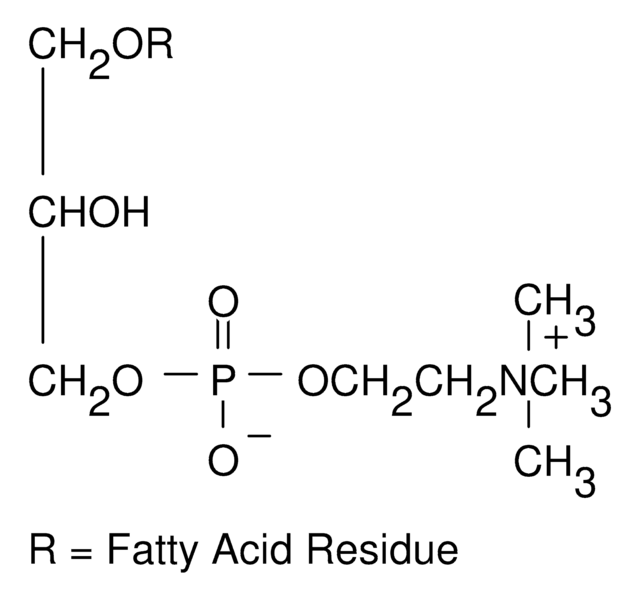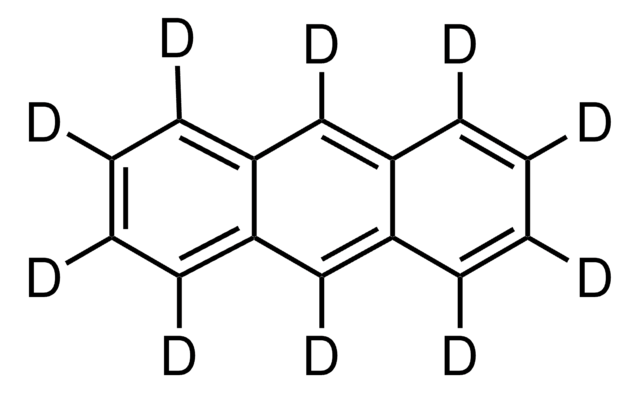858143P
Avanti
18:1 Lyso PS
Avanti Research™ - A Croda Brand
Synonym(s):
1-(9Z-octadecenoyl)-sn-glycero-3-phospho-L-serine (sodium salt); PS(18:1(9Z)/0:0); 18:1 LPS; C18:1 LPS; 110726
About This Item
Recommended Products
description
1-oleoyl-2-hydroxy-sn-glycero-3-phospho-L-serine (sodium salt)
Assay
99% (LPS; may contain up to 15% of the 2-LPS isomer, TLC)
form
powder
packaging
pkg of 1 × 10 mg (858143P-10mg)
pkg of 1 × 100 mg (858143P-100mg)
pkg of 1 × 25 mg (858143P-25mg)
pkg of 1 × 5 mg (858143P-5mg)
pkg of 1 × 50 mg (858143P-50mg)
manufacturer/tradename
Avanti Research™ - A Croda Brand
lipid type
cardiolipins
phospholipids
shipped in
dry ice
storage temp.
−20°C
SMILES string
O[C@](COP([O-])(OC[C@](C([O-])=O)([H])[NH3+])=O)([H])COC(CCCCCCC/C=C\CCCCCCCC)=O.[Na+]
Application
- for the preparation of phospholipid vesicles
- to study its effects on nerve growth factor (NGF)-induced mitogen-activated protein kinase (MAPK) and serine/threonine-protein kinase (Akt) signals
- to prevent the lack of de novo synthesis of phosphatidylserine (PS) in Golgi apparatus
Packaging
Legal Information
also commonly purchased with this product
Storage Class Code
11 - Combustible Solids
Certificates of Analysis (COA)
Search for Certificates of Analysis (COA) by entering the products Lot/Batch Number. Lot and Batch Numbers can be found on a product’s label following the words ‘Lot’ or ‘Batch’.
Already Own This Product?
Find documentation for the products that you have recently purchased in the Document Library.
Customers Also Viewed
Our team of scientists has experience in all areas of research including Life Science, Material Science, Chemical Synthesis, Chromatography, Analytical and many others.
Contact Technical Service










